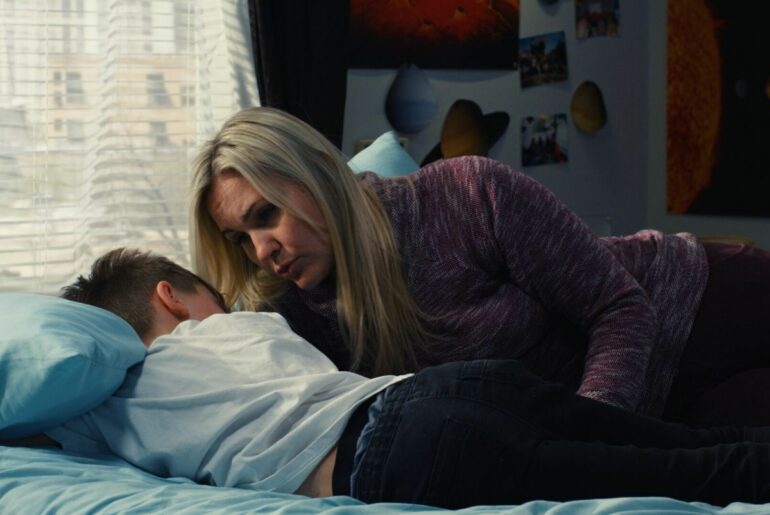Kids of all ages can experience grief after a death or another kind of loss, but their grief might not show up in the ways you’d guess or in the situations you’d most expect.
Of course there are likely to be signs of grief after a person they know dies, but it’s also natural for your child to react in similar ways to something like the death of a pet, the death of a celebrity, fatal violence in the news, a friend moving away, or another sense of loss like missing out on important events (as we all did during the pandemic).
Everyone grieves differently, and that applies to kids as well. Plus, reactions to loss can vary a lot depending on their developmental age. Here are just some of the signs you may notice if your child is grieving:
- Looking for, dreaming about, or sensing the presence of the person, animal, or thing they’ve lost
- Changes in eating, sleeping, or bathroom habits
- Suddenly acting younger than they are—or wanting to take on more adult responsibilities
- Irritability, anxiety, clinginess, stronger emotions in general
- Guilt or blaming themselves for the loss
- Withdrawing from people or avoiding regular activities
- Asking lots of questions or worrying about death or loss
- Complaining of physical aches and pains
- Difficulty concentrating
- Feeling embarrassed, trying to hide the loss or hide feelings of grief
Keep in mind, too, that kids are developmentally wired to be somewhat self-absorbed, especially in the early years. So, don’t be surprised if instead of traditional grief (or perhaps mixed in with periods of sadness) your child focuses on their own needs, asks if this loss will impact their upcoming birthday party, or otherwise seems disconnected from how the event is affecting others. It might seem to an adult as if they’re being insensitive or oblivious, but it’s completely normal for them to be looking at things from their own perspective.
What parents can do to support kids
When kids react differently to loss than we do, it can be hard to know how to comfort them or what you can say that might help them along in the grieving process. Here are some general ways to support your child through any kind of grief (with more ideas for kid-friendly language and approaches in each specific section below).
- Keep your routine consistent to help kids understand that life will go on.
- Offer lots of affection, cuddles, and one-on-one time—as well as comforting things like stuffed animals, favorite songs and books.
- Be honest about what happened (without sharing more disturbing details than necessary with young kids), and make sure they understand that the person or thing is not coming back. Avoid ambiguous terms like “passed away” or misleading claims like a loved one “went to sleep”—these can be confusing and scary for kids.
- Encourage play time—and know that if they act out scenarios of death or loss during play, it’s a healthy, therapeutic way of expressing themselves.
- Look up children’s books to read together about the type of loss they’re experiencing.
- Let them participate in a goodbye ritual of some kind.
- Tell them stories of when you went through a similar kind of loss, how difficult it was, and how you got through it.
- Remember that grief is cyclical, and just because your kid seems fine at one point doesn’t mean they won’t start to feel sad again in a few days, weeks, or months.
- With any kind of grief, don’t hesitate to seek out professional help if your child is struggling with symptoms of grief for more than six months, or if any of their reactions are so severe that you are worried about their mental or physical health.
Death of a pet
What to say to kids: “I know that X was incredibly special to you and that you loved her like a sibling. If you’re feeling sad, angry, confused or upset about not being able to see her anymore, it’s totally okay. You can talk to me anytime or ask me anything, or just sit with me quietly if you want. We’ll get through this together.”
For many kids, pets are more than just animals. Because a child’s world is so small, they may develop a stronger bond with pets than adults do. So keep in mind that for many kids, grieving a pet’s death may be just as serious as, or in some cases even more serious than, grieving a person’s death.
To help them process grief and find closure, you can encourage kids to get involved in a special project to commemorate the pet’s life. They could create a scrapbook or photo collage, plan a goodbye ceremony, decorate a box for the pet’s remains, or start a fundraiser for their favorite animal shelter.
Another approach that might help with the healing process is to spend time in nature and talk about the cycle of life. Learn about how plants and animals grow and come to life, and how even when they die they are still useful to the ecosystem. Kids will eventually begin to understand that death is a natural part of life—and while loss is still painful, they can bounce back from it.
Death of a grandparent or family member
What to say to kids: “Remember that you still have me and many other people in our family who love you, and we’re going to be alive for a long time. We can help you whenever you’re sad or mad or worried or lonely, and when you’re missing Grandpa we can talk about the happy memories together. He did so many silly things that he’ll give us something to laugh about for years and years.”
After a family member dies, children often worry that their parents or other remaining loved ones are going to die next. They may have a lot of questions about this, and while it’s a good idea to be honest about the fact that everyone dies eventually, it’s also important to reassure them that they’ll have you and other close loved ones to rely on.
Research has shown that the grandparent-grandchild relationship can be especially strong. To help them through this loss, it’s a great idea to do lots of hands-on and creative activities that are therapeutic while also reinforcing the love that they shared with the deceased. They could look at old photo albums together, draw pictures of memories, put together boxes of mementos, or even write a song about the person they’re missing.
Death of a friend
What to say to kids: “I know it is so, so sad that you won’t be seeing X at school or band practice anymore. I’m really going to miss seeing her too. But I want you to know that you’re safe, and that most kids live much, much longer—until they’re really old, even older than me! If you think of anything you want to ask about X or about what happened to her, I’ll be here to talk about it, okay?”
When someone their own age dies, beyond the regular grief, kids may also suddenly be worried about the fact they themselves could die. The child may also worry about how the death will affect their own routine and plans. So it’s crucial to encourage them to ask as many questions as they want, even if these questions are really hard to answer. Teach them about the many amazing ways our bodies show strength and resilience, and how we can heal from most things.
Especially for teens, their friends tend to be the center of their universe, so the death of a peer can hit them extremely hard. Be sure to be there for them, even if they are withdrawn or acting like they don’t need you. Just sitting next to your child and letting them know you’re there for them can speak volumes, whether they actually want to talk about it, or just want to watch something together or even sit in silence. You can also encourage teens to invite friends over or to make plans to hang out with peers, since they might open up to friends more than they would to you.
Kids who lose a friend may want to help in some way. Encourage them to play a small role in the funeral if they were a very close friend, to plan a creative memorial project at their school, to make something for the family of the deceased, or to help organize a fundraiser for the family or for a cause that the deceased friend cared about.
Death in news
If your kid overheard a news story about casualties of war, a group of people dying, someone famous passing—not someone you’re directly connected to, but something that might have upset them—yes, they might feel grief.
What to say to kids: “I know that even if you didn’t personally know X, hearing about their death was really devastating. It’s totally normal to grieve something like this—it was a big deal, and I get that. Would you like to tell me more about the details you learned about X to help them live on in our memories?”
The death of a celebrity or someone else they feel a connection to can hit kids and teens especially hard. “Even if your child hasn’t met the celebrity, that person can still have a huge impact on your child’s life and identity development,” explained Jana DeCristofaro, LCSW, Community Response Program Coordinator at The Dougy Center, The National Center for Grieving Children & Families.
Even if you weren’t interested in the person or people who died before the incident, it’s important to show genuine interest now. Let your child show you how and why the person was so special, as a way of supporting and validating their feelings. And don’t dismiss their need to go through an actual grieving period despite the fact they didn’t actually know the person.
Find a way for kids to feel like they are making a positive impact. Whether something traumatic happened or the person died a natural death, perhaps there is a charity they’d like to donate to or volunteer with that was close to the person’s heart, or that is related to the issue at hand.
Loss in general
There are other kinds of loss that may not involve death but can lead to grief anyway. Some examples include a friend moving away, a grandparent getting dementia and not seeming like the same person they once were, a major change in routine like one parent starting to work a night shift, or missing out on important events because of the pandemic or other circumstances.
What to say to kids: “It probably feels really awful that you’re missing out on X and things will never be the same again. I can only imagine how hard it must be for you because I know how hard you worked/how wonderful the time was you spent together/etc. If that makes you feel angry, sad, lonely, or any other yucky way, I totally get it! I’m always here for you if you want to talk, share memories, do a kickboxing video, or just wallow and watch a movie together.”
Remember that even though no one has actually died, your child deserves to feel real grief and take time and space to work through the difficult situation. These ambiguous types of loss can be challenging to deal with because there’s less of a sense of closure. So you might be able to help your child create a sense of closure, so that they can move on to the next stage.
You could help your child make a list of positive things they have gained from the friendship, relationship, or other unfinished business. Don’t gloss over the negative feelings they may have, but point out that these positive things can continue to give them strength forever—they don’t have to be lost just because they’re over.
Or, encourage your child to write a heartfelt letter—even if the person or thing can’t or won’t receive it. Writing (or even telling you what to write down) is a great way to process their feelings, and a goodbye/thank you letter can also provide some mental closure for the situation. If it’s an ongoing situation, the letter-writing could continue as long as it still seems to help.
Want more? A ParentsTogether reader wrote to let us know that in addition to this article, two youths in her grief support group suggested this piece as a helpful guide to the grief process for kids of all ages.







